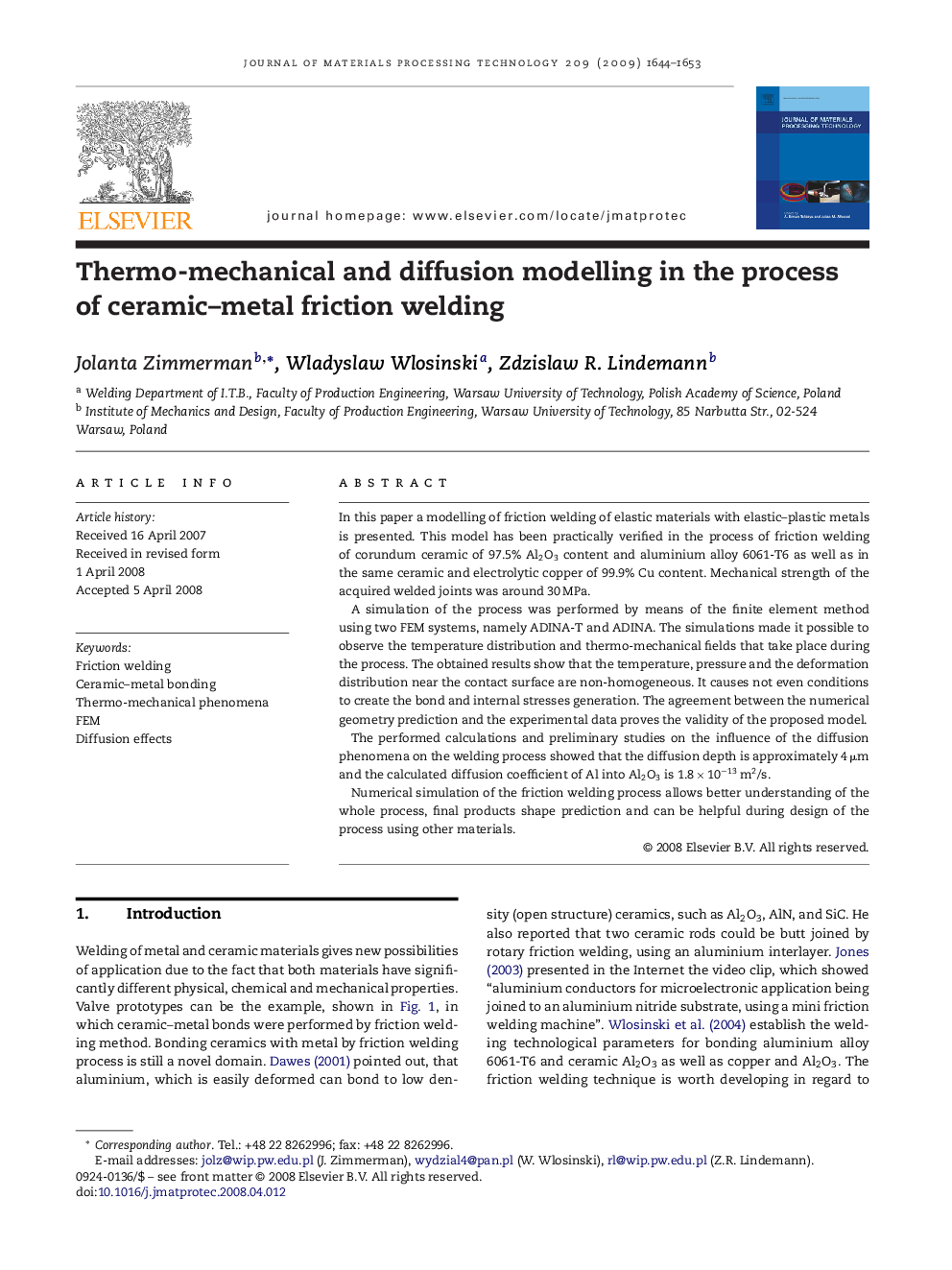| Article ID | Journal | Published Year | Pages | File Type |
|---|---|---|---|---|
| 798548 | Journal of Materials Processing Technology | 2009 | 10 Pages |
In this paper a modelling of friction welding of elastic materials with elastic–plastic metals is presented. This model has been practically verified in the process of friction welding of corundum ceramic of 97.5% Al2O3 content and aluminium alloy 6061-T6 as well as in the same ceramic and electrolytic copper of 99.9% Cu content. Mechanical strength of the acquired welded joints was around 30 MPa.A simulation of the process was performed by means of the finite element method using two FEM systems, namely ADINA-T and ADINA. The simulations made it possible to observe the temperature distribution and thermo-mechanical fields that take place during the process. The obtained results show that the temperature, pressure and the deformation distribution near the contact surface are non-homogeneous. It causes not even conditions to create the bond and internal stresses generation. The agreement between the numerical geometry prediction and the experimental data proves the validity of the proposed model.The performed calculations and preliminary studies on the influence of the diffusion phenomena on the welding process showed that the diffusion depth is approximately 4 μm and the calculated diffusion coefficient of Al into Al2O3 is 1.8 × 10−13 m2/s.Numerical simulation of the friction welding process allows better understanding of the whole process, final products shape prediction and can be helpful during design of the process using other materials.
